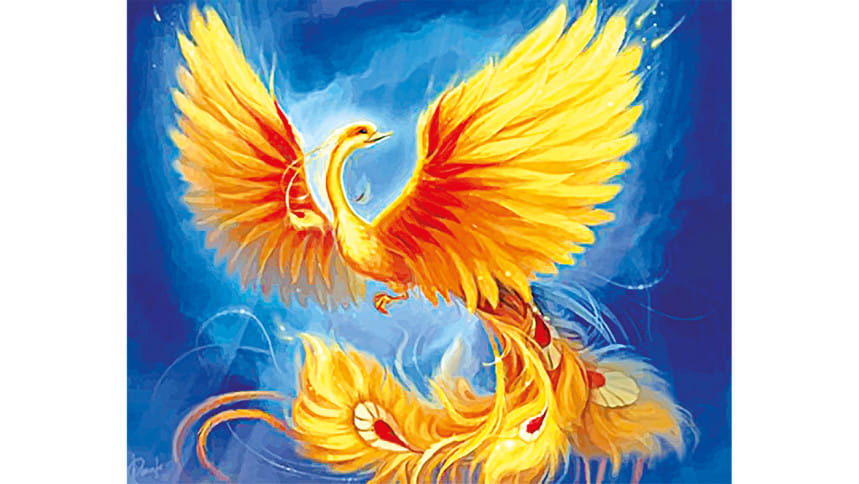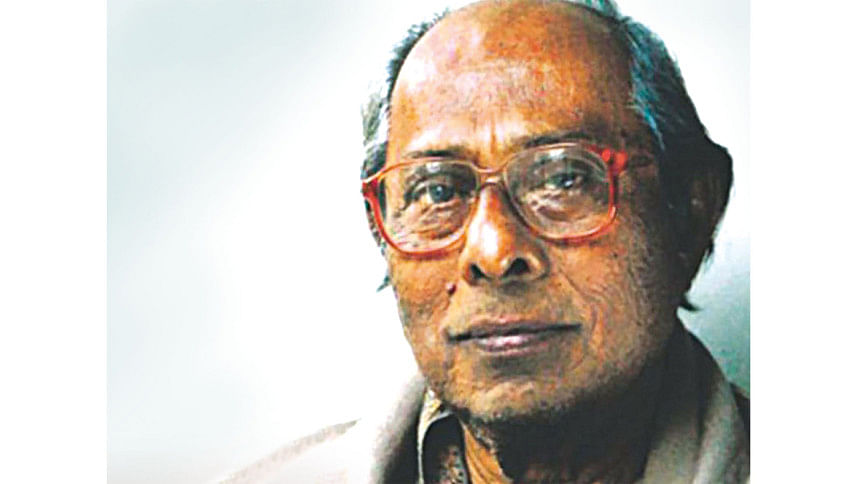Oh Firebird, Can You Ever Fly Away from Us!

"Are you sure he can make it? The Rupsha in March is not safe, nor are the Sundarbans."
"Madam, I am worried too, but he is indomitable in his resolve."
Back in 2015, amidst the din and bustle of hosting an international conference, the trail of my conversation with a junior colleague from Khulna University, was broken by none other than the subject of our apprehensions – not just the indomitable but also the inimitable Hasan Azizul Huq himself. With that familiar broad smile, the man of the moment had clearly got whiff of our fears, and blowing it all to the winds, he said with a curious glint of humour in his eyes:"Ki, tumi bhoy paccho? Amar kissu hobena. Parle tumio cholo sathe …" (Are you afraid? Rest assured; nothing will happen to me. Come with us if you can).
He uttered my name and where I lived to prove he did, as usual. Khulna after all was in his blood, and so was I his kin, who I daresay had Hasan Sir's unconditional affection.
While work fettered me in the office, my mind travelled in august company and pristine surroundings all day. And by evening, while the young lecturer was too tired even to attend the conference dinner, Hasan Sir was back in his jovial self, holding the audience in rapt attention with enlivening details of the day! As in his unsurpassable body of work, so was he in his daily life of which he savoured every moment– such was the vivacity of Hasan Azizul Huq.
I am fortunate to have known Huq beyond his writerly self; frequent visits to Rajshahi made me almost an insider at his place. Even when I was not so frequent, we'd have telephone conversations that began with his health, and moved on to what he was writing, or what I was researching on. I do not have a name for this bonding we shared -- a daughter, or a confidante, but his calls always soothed me. I still remember the exact words of the first time he called me:
"Tumi bolo ami tomay mone korina, ami kintu tomay shob shomoyei mone kori, ei dekho kemon proman diloom" (You say I do not remember you, but that's not it. See I have proven it now).
His Burdwan accent, the simplicity of his ways, and a never-ending nostalgia hung like a silhouette around him. In 2017 when I was working on a Partition project, he guided me to his Savitri Upakhyan, which he considered his best writing on women's situation during the Partition. As I read through it, I found it too painful for a woman to narrate in words. Agunpakhi, by popular acclaim, is his magnum opus, while his autobiography Smritikahan represents vivid memories of the apocalypse; but Savitri Upakhyan is indeed one of a kind, and deserves greater research.

I would often take my children to visit him; his study full of books was a haven to my daughter. I was particularly attracted to the old wooden table with its musty smell, the sweet fragrance of blossoms wafting in from the adjacent balcony creating a magical ambience. Amidst such pure bliss, I have been privy to his narrations – of childhood, the land he left behind, his old workplace and his personal life, and of the new nation he witnessed in evolution. While the distant gaze in his eyes would say he was transported elsewhere, even the slightest response from his audience would at once sharply bring him back to the present. Hasan Sir had his share of grouses too, which he would share with a close circle of friends who often visited him. In fact, I met many of the famous teachers of Rajshahi at his residence.
I still recall fondly his ardent wish to regain physical strength to visit Khulna, a place he loved to the core. His love for Khulna visibly emerged from memories of his first Bangladeshi home in Daulatpur. Almost a year since his demise, I have still not been able to get past our heartfelt conversation where he promised that he would surely come when he was able to travel.
Our wishes remained unfulfilled. He was weak, ailing, and had supposedly lost powers of cognition when I last met him at his place on September 30, 2021. As I entered his living room, he was sitting there, albeit a shadow of his past but the same old glint in his eyes. His unforgettable smile rendered my question on recognition redundant, and he shot back:
"Why won't I?"
He uttered my name and where I lived to prove he did, as usual. Khulna after all was in his blood, and so was I his kin, who I daresay had Hasan Sir's unconditional affection.
In closing this remembrance on a befitting note, I recall the first ever International Conference hosted by the Humanities Faculty of Rajshahi University. I was presenting a paper on Smritikahan in connection with my oral history project, and Sir had promised to be in the audience. His failing health, security issues and inimical weather made the organizers write off his presence in the audience. I had barely begun my presentation when the heavy wooden door of the classroom swung open to let in none other than Hasan Azizul Huq, who had come with assistance to keep the word he'd given to me.
I was reading from his autobiography to relate experiences of people I had interviewed, with the author's felt uncertainties of settling in a new land –
I do not know if I would be able to love the villages of Jashore or Khulna. So much shades, such darkness, so many muddy tunnels, earthen verandas, golpata-covered huts of the poor, beels and marshes – would these ever be my darlings! (Smritikahan 581; tr. mine).
It was an emotional moment for me, in the presence of the septuagenarian author, the inner thoughts of a sixteen-year-old travelling on a crowded train, amidst harsh treatment and shouts in Urdu from the non-Bengali immigration officers, yet looking forward to a supposedly brighter prospects in a country for Muslims. Perhaps, the troubles of the new country that would culminate in a bloody war, were then beyond his imagination; but he was already sensitive enough to feel the unease in the air. I was wondering what thoughts were crossing his mind at that moment, while I offered this throwback into the very long road he had traversed in life. Teary-eyed nostalgia is what I saw in those ever-bright eyes!
An otherwise ordinary presentation at once turned into a dream come true for a Bangladeshi academic who has always reveled in being a daughter of the soil. He even expressed a desire to read the paper when it was published. While that didn't happen in his lifetime, I look for an opportunity to translate his work for newer generations in search of their history. Somewhere there is also a reverie in this, for I often have wistful thoughts of a telephone call from somewhere saying, "I haven't forgotten you. I have read your translation of my work!" A writer of his ilk indeed merits more informed translation, inclusion in South Asian anthologies, critique and appreciation too.
Sabiha Huq is a professor of English at Khulna University.

 For all latest news, follow The Daily Star's Google News channel.
For all latest news, follow The Daily Star's Google News channel. 



Comments